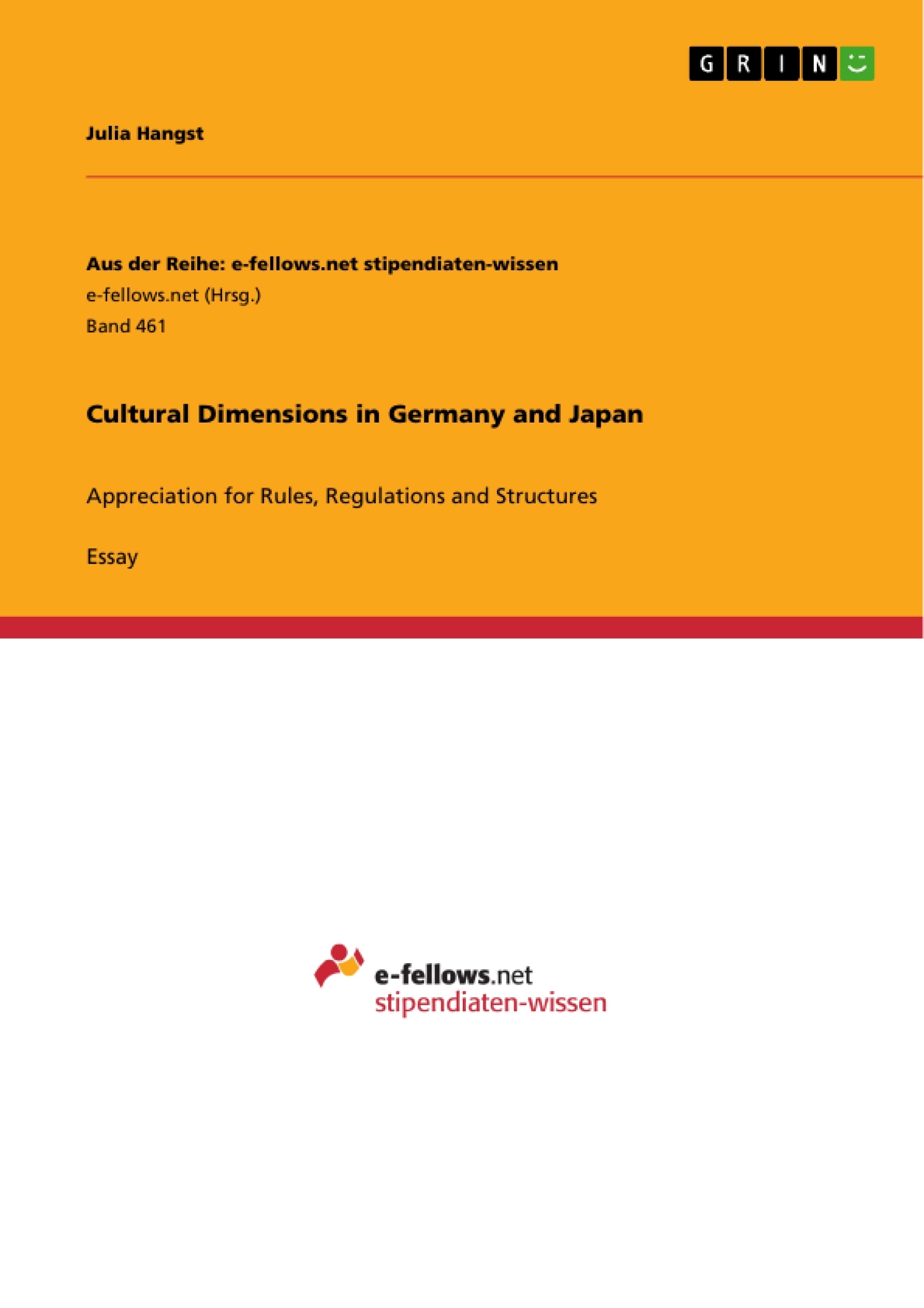In today’s business society the “increasing importance of global business” (Adler 2008, p. 5) can no longer be ignored. Executives need to be “skilled at working with people from countries other than their own” (Adler 2008, p. 13) because “only those who really understand their foreign colleagues and themselves can achieve success in international business” (Schroll-Machl 2003, p. 9).
Geert Hofstede, a Dutch organizational sociologist, conducted a worldwide study on the influence of national cultures on organizational cultures. One of the dimensions he found during his study was uncertainty avoidance. This dimension “deals with a society’s tolerance for uncertainty and ambiguity. […] It indicates to what extent a culture programs its members to feel either uncomfortable or comfortable in unstructured situations. Unstructured situations are novel, unknown, surprising, different from usual. Uncertainty avoiding cultures try to minimize the possibility of such situations by strict laws and rules, safety and security measures.” Moreover they are often guided by the “belief in absolute Truth: there can only be one Truth and we have it. […] Uncertainty accepting cultures are more tolerant of opinions different from what they are used to; they try to have as few rules as possible” (Hofstede 1994, p. 4).
This paper deals with the influence of this uncertainty avoidance dimension and the accompanying appreciation of rules and regulations on doing business in Germany and Japan.
Inhaltsverzeichnis (Table of Contents)
- Introduction
- Appreciation for rules, regulations and structures in Germany and Japan
- Reasons behind this cultural orientation
- Appreciation for rules and regulations in the business world
- Perfectionism and planning
- Meetings
- Job responsibilities
- Past-orientation
- Changes towards this cultural orientation
- Conclusion
Zielsetzung und Themenschwerpunkte (Objectives and Key Themes)
This paper investigates the influence of uncertainty avoidance and the accompanying appreciation of rules and regulations on doing business in Germany and Japan. The author explores how this cultural dimension manifests in various aspects of society and business, aiming to provide insight into the significance of understanding and adapting to these cultural nuances.- Uncertainty avoidance and its impact on cultural orientation
- Appreciation for rules and regulations in Germany and Japan
- Reasons behind the cultural orientation towards strong adherence to rules
- The role of rules and regulations in the business world
- Adaptations to this cultural orientation
Zusammenfassung der Kapitel (Chapter Summaries)
- Introduction: The introduction sets the context by highlighting the increasing importance of global business and the need for understanding diverse cultures to achieve success in international collaborations. It introduces the concept of uncertainty avoidance and its implications for cultural orientation, particularly in Germany and Japan.
- Appreciation for Rules, Regulations and Structures in Germany and Japan: This chapter explores the prevalent appreciation for rules and regulations in Germany and Japan, emphasizing their high value and the expectation for both nationals and foreigners to adhere to them. It provides examples of specific situations where these rules are evident, such as social codes, cleaning procedures, and noise regulations.
- Reasons behind this Cultural Orientation: This chapter delves into the historical and geographical factors that have contributed to the development of strong uncertainty avoidance in Germany and Japan. It examines how these factors have shaped cultural values and fostered a strong emphasis on rules and regulations to maintain harmony and security.
- Appreciation for Rules and Regulations in the Business World: This chapter focuses on how the cultural orientation towards rules and regulations manifests in the business world. It discusses the importance of perfectionism, planning, risk management, and standardized procedures. The chapter also examines the differences in approaches to problem-solving and accountability between Germany and Japan.
Schlüsselwörter (Keywords)
This paper focuses on the concepts of uncertainty avoidance, cultural dimensions, rule-orientation, and the impact of these factors on business practices, particularly in Germany and Japan. It also examines the historical and geographical factors that have shaped these cultural orientations. Key terms include: cultural diversity, global business, uncertainty avoidance, rules and regulations, business culture, Germany, Japan, and cultural adaptation.Frequently Asked Questions
What is "uncertainty avoidance" in Hofstede's dimensions?
It describes a society's tolerance for ambiguity and unstructured situations, leading to a preference for strict rules and security measures.
How do Germany and Japan differ in uncertainty avoidance?
Both cultures score high in this dimension, manifesting in a strong appreciation for rules, detailed planning, and standardized procedures in business.
Why are rules so important in German and Japanese business?
Rules provide a framework for harmony and security, helping to minimize risks and ensure perfectionism and quality in work processes.
What role does "past-orientation" play in these cultures?
A strong focus on history and established traditions often reinforces the adherence to proven regulations and structures.
How should executives adapt when working with these countries?
They must understand and respect local social codes, be prepared for detailed meetings, and value clear job responsibilities and planning.
- Citar trabajo
- Julia Hangst (Autor), 2011, Cultural Dimensions in Germany and Japan, Múnich, GRIN Verlag, https://www.grin.com/document/196523



